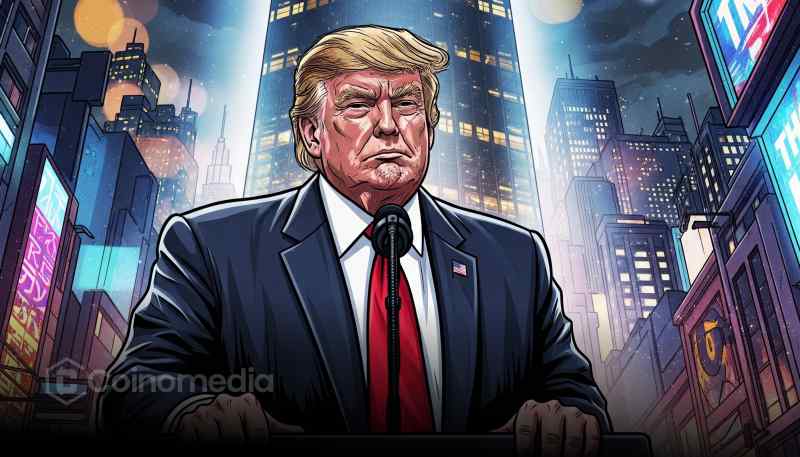Trump Pardons CZ, Says “It Wasn’t Even a Crime”
Trump says he pardoned CZ due to strong support and claims that "what he did is not even a crime."

- Trump confirms he pardoned Binance founder CZ.
- Says CZ had massive support from the community.
- Believes CZ’s actions shouldn’t have been criminalized.
Former President Donald Trump has made headlines again, this time for granting a presidential pardon to Changpeng Zhao, better known as CZ, the founder and former CEO of Binance. In a statement today, Trump justified his decision by saying, “They said that what he did is not even a crime.”
The move has shocked some and delighted others, especially in the crypto community, which has long debated the regulatory treatment of crypto pioneers. CZ, once under legal scrutiny in the U.S., now walks free after Trump’s pardon wiped his record clean.
Why Trump Pardoned CZ
According to Trump, the decision wasn’t made lightly. He emphasized that CZ had a lot of public support, and that many legal and industry experts argued that his actions — mainly regarding compliance issues and U.S. regulation — shouldn’t have been considered criminal in the first place.
“I heard from a lot of smart people. They told me this wasn’t a real crime. So I looked into it and decided to give him a second chance,” Trump said during a press briefing.
This perspective mirrors growing sentiments in the crypto world, where many believe that unclear regulations have led to unfair legal actions against innovators.
Crypto Industry Reacts
The crypto space reacted swiftly. Many applauded Trump’s decision, viewing it as a much-needed signal that the U.S. might be ready to re-evaluate its stance on crypto enforcement. CZ, who had stepped down from Binance leadership as part of a previous settlement, expressed gratitude and reaffirmed his commitment to supporting crypto innovation globally.
Some regulators and politicians, however, have criticized the pardon, saying it could set a dangerous precedent. Still, Trump’s bold move has sparked fresh debates about the future of crypto regulation in the U.S.




